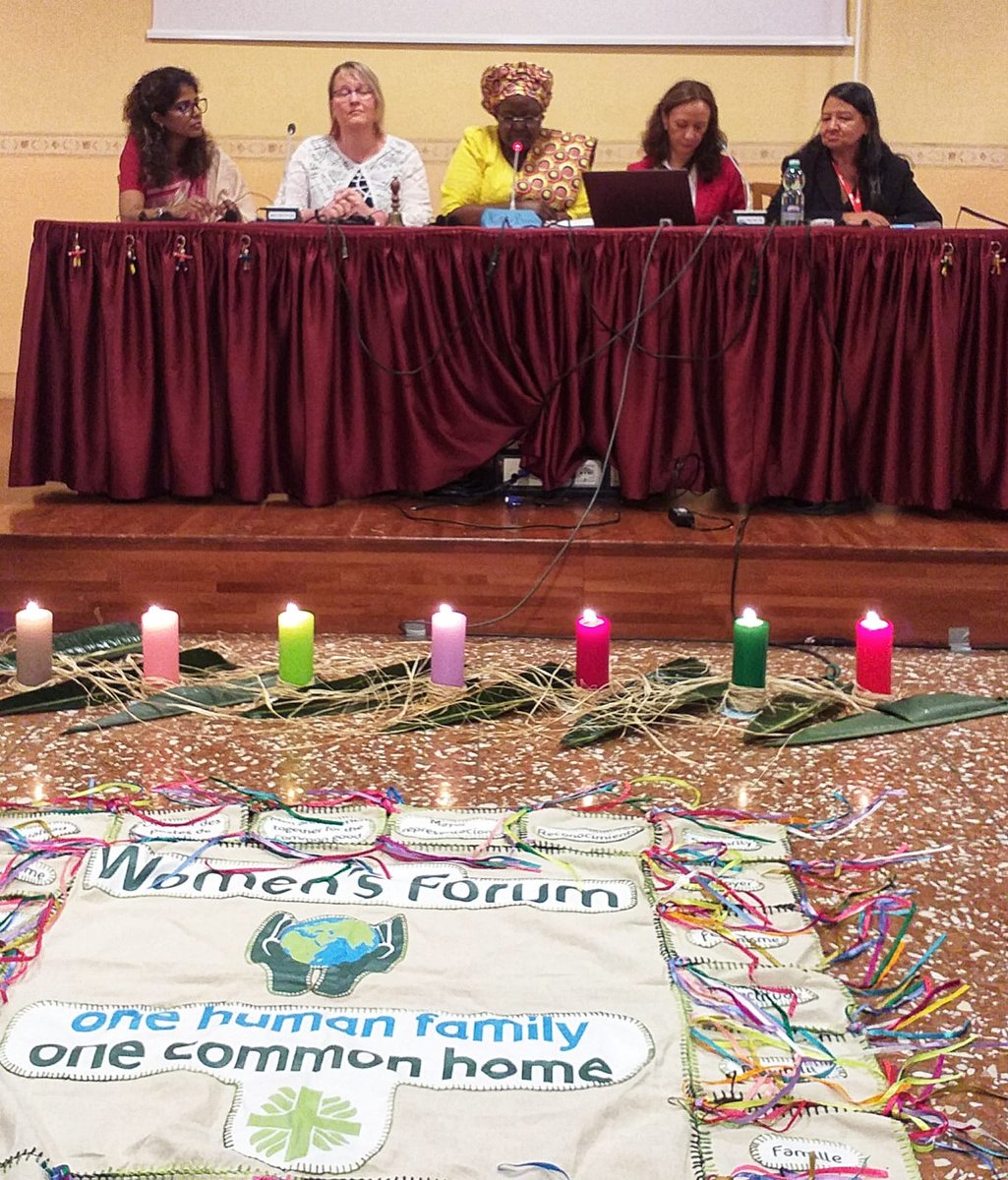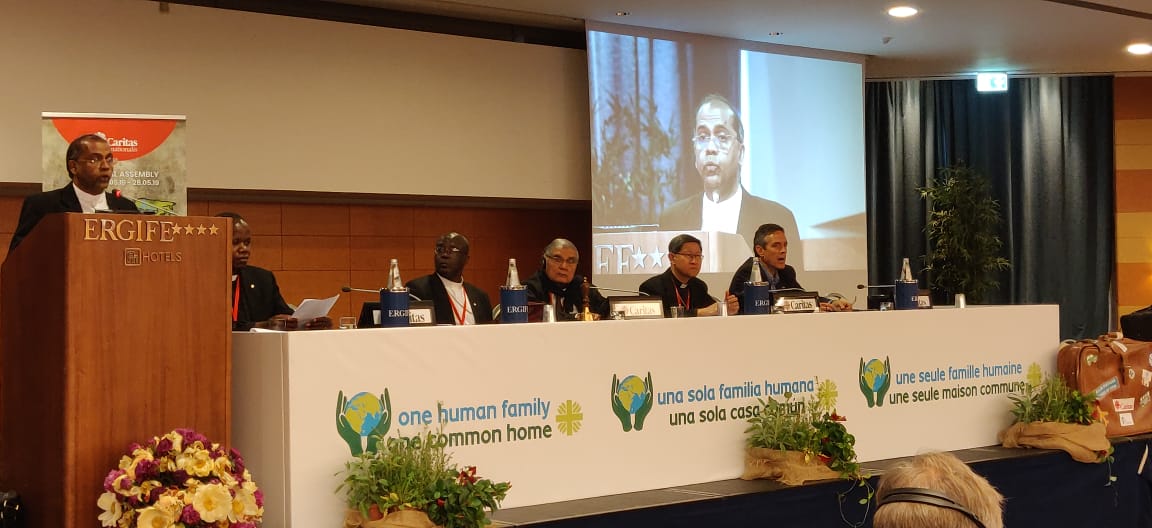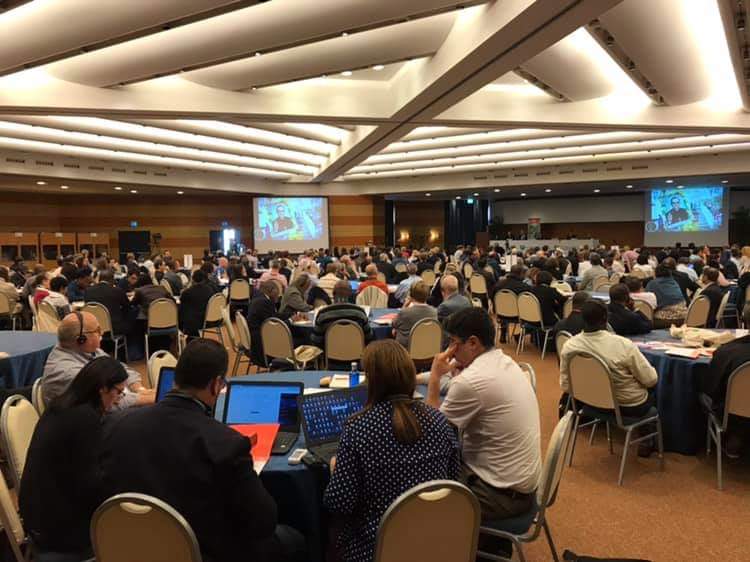Caritas India aligns her Strategic Framework to the Strategic Orientation of Caritas Internationalis

It was a proud moment for Caritas India to be one of the prime stakeholder of the 21st General Assembly, held in Rome from May 23-28, 2019.

Caritas India, represented by Ms. Babita Alick, Manager- Operations, was invited as a panel speaker to share inputs and recommendations on the “Role of Women and Men in Caritas… Experiences, Barriers, and Hopes” during the Women’s Forum organized as a Pre Event to the General Assembly, on May 22, 2019, in Casa De Salle, Via Aurelia. The forum was represented by 80 women and men from 7 regions of the World.
The forum made a strong recommendation to be proposed to the General Assembly of having more than one-third representation of women and to have a theme in the next General Assembly on the role and Engagement of Women.
On the 1st day of the General Assembly, Ms. Babita Alick was one of two Panel Speakers to speak on “Caritas and development in the World”. She gave input on the scenario of the country in terms of social and economic development and how Caritas is addressing some of these challenges. It was a very strong platform for India to showcase the approach to development drawing directives from the Strategic Framework of Empowerment Animation, Dialogue, Volunteerism and Sharing Communities. The input was well accepted and appreciated by the Assembly and many have expressed their interest to understand in depth about the strategic plan enrolment.
https://www.facebook.com/help/396404120401278/list?ref=embed_video
Caritas India was also featuring live on Facebook Live as a side event during the General Assembly. The discussion topic was on Caritas and the globalization of Indifference and Laudato Si. Ms. Babita Alick, representing Caritas India, brought forth her experiences and recommendation of how Laudato Si can be reflected and integrated into our work.

On the final Day, Caritas India also proposed a resolution to include ‘Health and HIV’ in the Strategic Framework. Presenting the resolution of Caritas Internationalis during the General Assembly 2019, Fr. Paul Moonjely, Executive Director of Caritas India, shared “Health is not only a regional or a national priority – it encompasses the entire humanity and it is a pillar of Integral Human Development.” The resolution urged the Representative Council to dedicate an agenda item of the upcoming meeting to the issue of the position of “Health and HIV” within the Strategic Framework of Caritas Internationalis (including adequate reporting and resources), so then the precious global coordinating role of the Secretariat on this issue so beneficial for us, will adequately continue.

The General Assembly concluded with the elected new secretary general, Aloysius John for the next four years. It also reconfirmed its President Cardinal Luis Antonio Gokim Tagle.
Upcoming News
Empowering the invisible workforce through holistic migrant welfare approach
Internal migration forms the backbone of India’s workforce, driving the growth of urban centers and...
LEARN MORENATURE-BASED SOLUTIONS: RECONNECTING COMMUNITIES WITH THE WISDOM OF NATURE
As climate threats intensify across India, Nature-Based Solutions (NbS) are emerging as powerful community-rooted strategies...
LEARN MOREStrengthening Humanitarian Expertise Through DG ECHO Training
Caritas India recently participated in a high-level capacity-building training organized by the Directorate-General for European...
LEARN MORE



 91 -11 - 2336 3390
91 -11 - 2336 3390  director@caritasindia.org
director@caritasindia.org 